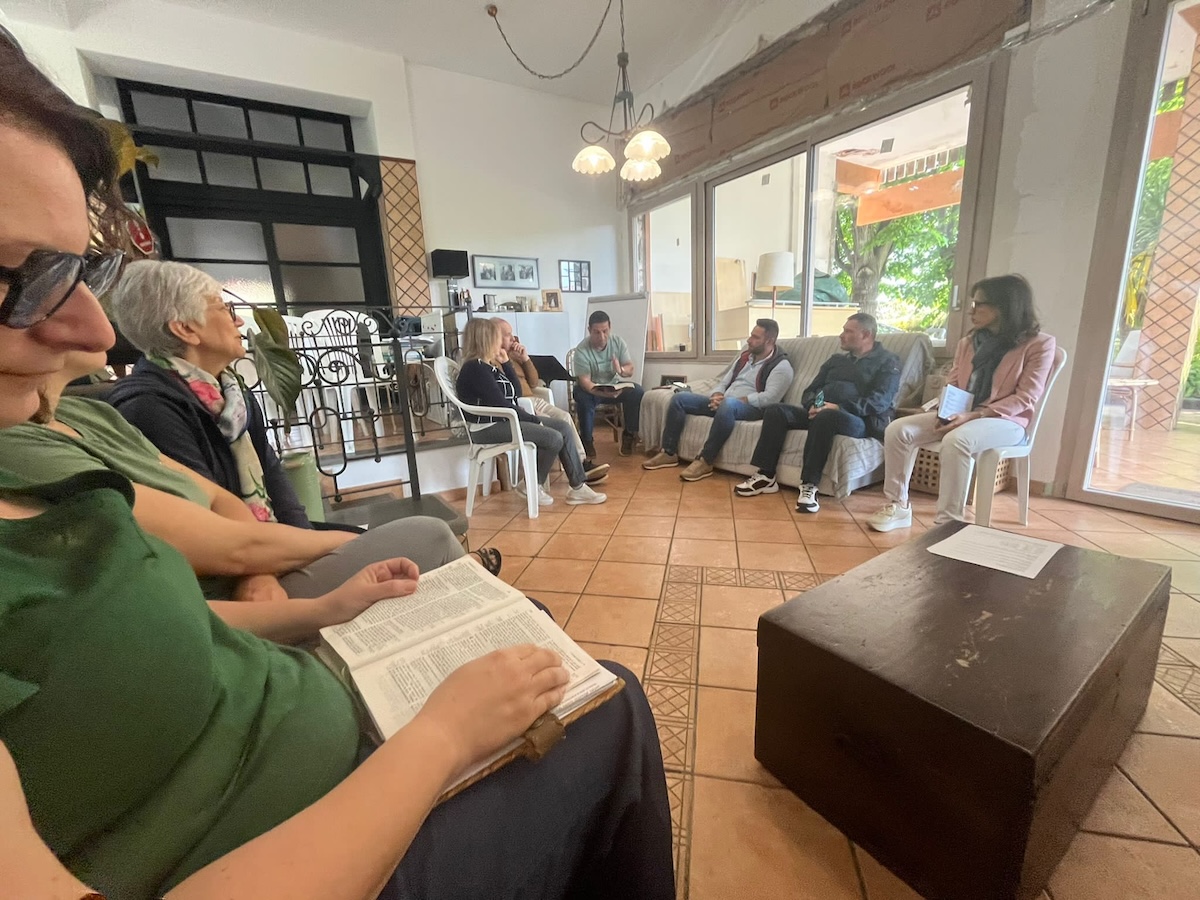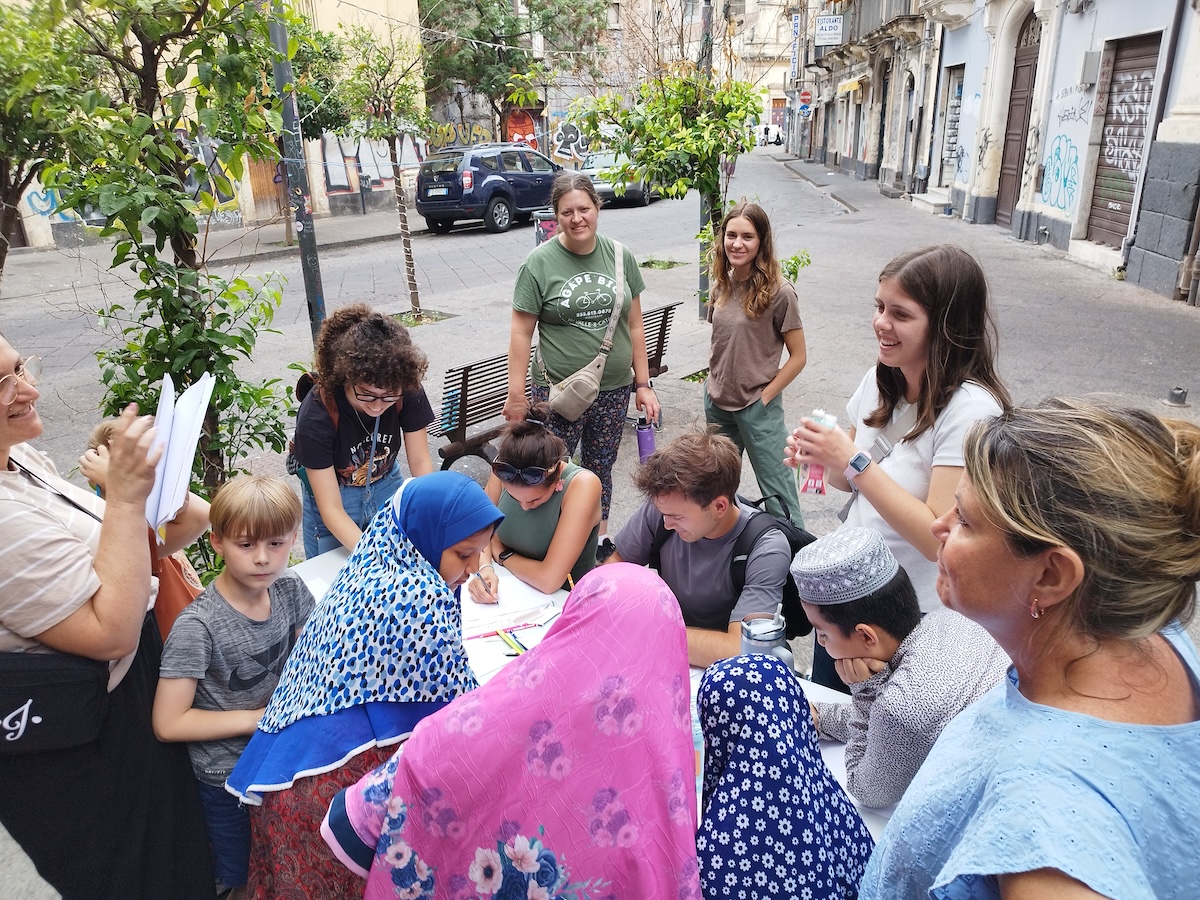A couple of days ago, I listened to this podcast from Global Missions Podcast as I was driving between appointments. They were featuring and interviewing J.D. Payne, a missional theologian and teacher about a new book that J.D. had written talking about Apostolic Imagination. Here is the podcast if you would like to take a listen:
I thought it was pretty interesting and ended up reading a section from the book of Acts that J.D. referenced in his talk in the podcast. Here is the scripture:
In those days when the number of disciples was increasing, the Hellenistic Jews among them complained against the Hebraic Jews because their widows were being overlooked in the daily distribution of food. So the Twelve gathered all the disciples together and said, “It would not be right for us to neglect the ministry of the word of God in order to wait on tables. Brothers and sisters, choose seven men from among you who are known to be full of the Spirit and wisdom. We will turn this responsibility over to them and will give our attention to prayer and the ministry of the word.”
This proposal pleased the whole group. They chose Stephen, a man full of faith and of the Holy Spirit; also Philip, Procorus, Nicanor, Timon, Parmenas, and Nicolas from Antioch, a convert to Judaism. They presented these men to the apostles, who prayed and laid their hands on them.
So the word of God spread. The number of disciples in Jerusalem increased rapidly, and a large number of priests became obedient to the faith.
Acts 6:1-7
Observations
I wanted to share a few observations from what we can see in this scripture:
First, in the first verse, we see that the church is growing and the number of disciples is increasing. This is important because we can see that the Apostles are leading the church, whether in prayer, evangelism, teaching, or in other ways, and the church is growing in the number of people that were coming to faith and learning to follow Jesus.
Second, we see that the church is working to care for the widows that are connected to the church, providing food to them on a daily basis. However, there was a problem in that there was an inequality amongst the different groups of people, so they needed to figure out a solution to this inequity through a just and right distribution that would be handled by trustworthy leaders. So, the apostles clearly saw that this ministry was important and they dedicated time and resources, including money and some of their best people, to finding a solution to the problem.
Third… However, the apostles also placed a priority upon other activities: prayer and ministry of the word.
What does this mean? On precisely what things were they placing their priority?
It means that the Apostles were seeing a need, as the church was growing and the number of disciples were continuing to grow, to continue to pray and ask God for direction. To disciple the new people, to teach them, and to continue to make disciples through evangelism and teaching the disciples to make more disciples.
How do we know that this is what they were doing? In other parts of the book of Acts, we see that they were going daily to the temple courts – in public – to share the word of God. And further, we later see that the disciples that were scattered during a time of persecution also went to make disciples where they were located, sharing the Gospel and starting new churches. How did they know how to do this? They were taught by the apostles and they went on to do the same things when they resettled.
But let’s get back to the story at hand… We see that the Apostles are thinking that it is important for them to be praying and making disciples, focusing on these things. If they don’t do this, they are not being obedient to Jesus’s command to go and make disciples.
And finally, what is the result? As they hand this responsibility to the others, the results work together to make many more disciples. While the Apostles continue their work in prayer and ministry of the Word of God, the new deacons now are also doing the work which serves, and even wins more disciples from the Jewish leaders.
What is our priority?
We have so many good things happening around the church today. There are many activities, similar to the feeding programs that we read about here in this first church, that are designed to be a help both inside and outside of the church, even designed to reach out and assist in evangelization.
Unfortunately, though, we often neglect prayer and ministry of the Word of God – evangelization, teaching, making disciples that will obey the commands of Jesus – because we are busy with all of the other activities. Within our churches, we need an apostolic vision, seeing where the Kingdom of God has not yet entered and pray and minister to people with the Word of God. That doesn’t mean that we don’t do the other programs, but where are we spending the majority of our time and our resources? Is it upon developing and participating in “missional” activities that, yet, do not share the Word of God? Are are we setting our priorities in the same way that the Apostles did, spending our time in prayer and the ministry of the Word?
Jesus’s instructions were clear. Although it is not a problem to have them, and they can be very helpful to our communities, Jesus didn’t call us to create and focus upon social programs. He called his disciples to make disciples, teaching them to obey everything that he taught. This is our goal and we must stay focused and set our priorities for our time and resources based on his instruction.








